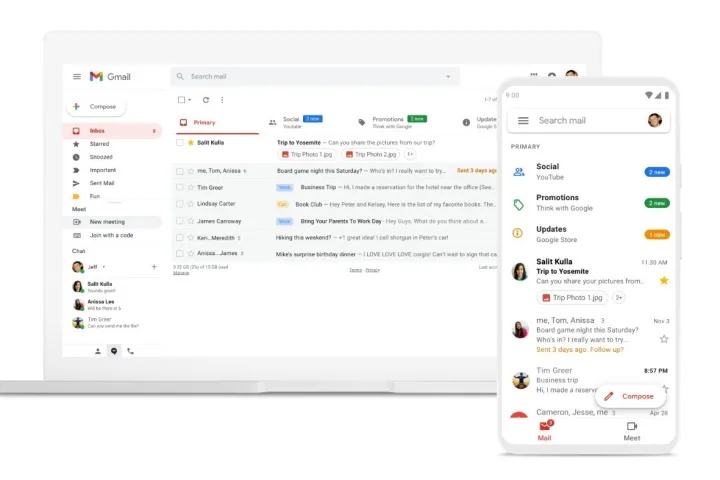Google Workspace has plans to beef up the security within Gmail in the coming year, with a focus on making bulk emails less easy to flood users with.
While the brand has begun sharing details of its plans for Gmail, it won’t begin rolling out updates to the email service until February 1, 2024. The advance notice is to prepare users, especially those who navigate the Gmail platform in bulk, meaning over 5,000 messages at once, of the upcoming changes.

The new requirements are intended to make Gmail more secure and user-friendly, and to decrease spam for high-volume users, who might be especially susceptible to phishing and malware attacks, due to not being aware of security holes bad actors can take advantage of.
Last month, for example, a team of hackers was able to infiltrate Microsoft Teams to execute a phishing scam called “DarkGate Loader.” The scheme centers on a bogus Teams message about “changes to the vacation schedule,” but contains an intricate hidden malware when downloaded. Cybersecurity researchers uncovered that hackers were able to access Teams through compromised Office 365 accounts and even found the unsecured email addresses they were able to take over.
Such an incident is exactly why Google Workspace is pushing forward with its new requirements, which include email authentication, the ability to easily unsubscribe, and email assurance. Yahoo is partnering with Google to take on these requirements within its email provider as well, with an aim of making it an industry standard.
Email authentication will require bulk senders to confirm themselves as the owner of the account before continuing to send an email, “following well-established best practices.” This requirement will be set in place as a security measure to find the exploits before hackers can.
Culk users will be able to unsubscribe with one click from commercial emails, with two-day processing.
Email assurance for bulk users will require the rate of spam in an inbox to be capped, resulting in less spam visible within your inbox. Google says this implementation is an industry first.
Google noted while these requirements are already common practices for many Gmail users, their strict implementation will assist in improving the health of the platform from February 2024, moving forward.
The guidance is intended for bulk users with a personal account that ends in @gmail.com or @googlemail.com, or a work or school account from Google Workspace. The latter accounts don’t end in @gmail.com, but are rather associated with an organization, such as .edu.
Editors' Recommendations
- Google’s AI just got ears
- How to use Google Gemini, the main challenger to ChatGPT
- Google One AI Premium: what is it, and how much does it cost?
- Google Gemini vs. GPT-4: Which is the best AI?
- How to generate AI art right in Google Search




